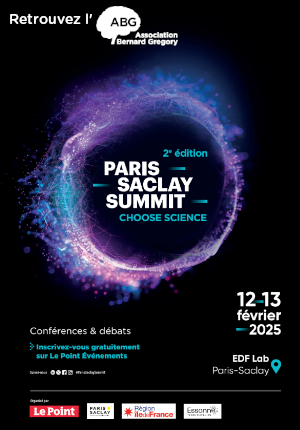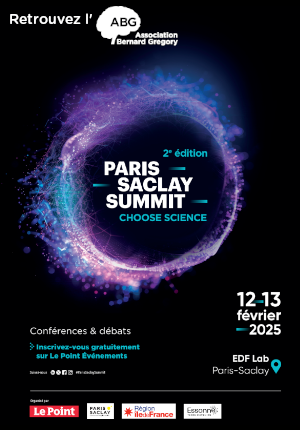Machine Learning-Driven Synthesis of Macromolecular Architectures for Biomedical Applications
| ABG-127984 | Sujet de Thèse | |
| 17/01/2025 | Contrat doctoral |

- Chimie
Description du sujet
Peptides, the building blocks of life, possess remarkable biological and chemical properties. However, their synthesis remains challenging, particularly at scale. Polypeptoids, a promising alternative, offer enhanced stability, reduced immunogenicity, and improved solubility, making them ideal candidates for biomedical applications. This project focuses on developing peptide-like polymers, overcoming traditional peptide synthesis challenges such as high cost, limited scalability, and complexity.
This PhD project aims first to leverage machine learning and data mining to optimize peptide-like polymer synthesis by predicting optimal reaction conditions, reducing experimental trial-and-error, and improving scalability. Polymerization Induced Self-Assembly (PISA) will also be employed to design polypeptoid-based nanoparticles, unlocking potential applications in drug delivery, antimicrobial coatings, and tissue engineering.
The research will explore the creation of innovative block copolymers and comb-like copolymers through a combination of synthetic strategies, polycondensation, controlled radical polymerization, click chemistry, and polymer modification. The grafting of specific ligands onto macromolecular chains will enable precise targeting of diseased tissues or organs.
Comprehensive characterization of the synthesized polymers will involve advanced techniques such as chromatography, high-field NMR, FT-IR, elemental analysis, and thermogravimetry. The nanoparticles will undergo thorough analysis using light scattering and bio-efficiency assessments.
Prise de fonction :
Nature du financement
Précisions sur le financement
Présentation établissement et labo d'accueil
Created on January 1, 2007, the ICMPE is a joint research unit (UMR 7182) of the CNRS and the University of Paris-Est Créteil (UPEC).
Our laboratory is developing original and innovative research in the fields of chemistry and materials science, as well as at interfaces with physics, engineering and biology, in order to respond to major societal challenges in the cross-cutting themes of energy, transport, environment, sustainable development and health.
Areas of expertise
The Unit’s areas of expertise cover both fundamental and applied research, with an articulation around three major cross-cutting themes:
Materials for structures and energy.
Molecules, materials and processes for the environment and sustainable development.
Chemistry for health at the interface with the living.
Unit Structure
In order to reach a critical size making it possible to tackle very competitive subjects and to promote a synergy capable of responding to common concerns and objectives, the Unit is structured into 2 scientific departments: Molecular Chemistry and Macromolecular Materials (C3M) and Metallurgy and Inorganic Materials (M2I). It is also equipped with 6 technological platforms rich in a very powerful instrumental park: SPS-flash sintering; CAP-analytical and preparative chromatography; EME-metallurgical elaboration; MIC-microscopies; SPE-spectroscopies; MAM-measurements and analyzes of materials …
Location of the ICMPE
Located halfway between Orly and Paris and located on the CNRS campus in Thiais, the ICMPE accommodates around sixty researchers and teacher-researchers, around thirty engineers, technicians and administrators, as well as around fifty non -permanent (doctoral students, post-docs, ATERs, CDD), specialists in molecular chemistry, polymer science, solid-state chemistry, electrochemistry, metallurgy and physics of materials.
Profil du candidat
We seek a highly motivated candidate with a Master’s degree and a strong interest in machine learning, organic chemistry, polymer synthesis or biomedical applications. The project can be adapted to the candidate’s skills. The PhD student will play a pivotal role in developing novel polymer-based therapeutics, working alongside a multidisciplinary academic team of chemists and biologists.
Vous avez déjà un compte ?
Nouvel utilisateur ?
Vous souhaitez recevoir nos infolettres ?
Découvrez nos adhérents
 CESI
CESI  CASDEN
CASDEN  Institut de Radioprotection et de Sureté Nucléaire - IRSN - Siège
Institut de Radioprotection et de Sureté Nucléaire - IRSN - Siège  MabDesign
MabDesign  SUEZ
SUEZ  ANRT
ANRT  Institut Sup'biotech de Paris
Institut Sup'biotech de Paris  PhDOOC
PhDOOC  Groupe AFNOR - Association française de normalisation
Groupe AFNOR - Association française de normalisation  Laboratoire National de Métrologie et d'Essais - LNE
Laboratoire National de Métrologie et d'Essais - LNE  Généthon
Généthon  MabDesign
MabDesign  Aérocentre, Pôle d'excellence régional
Aérocentre, Pôle d'excellence régional  Tecknowmetrix
Tecknowmetrix  Nokia Bell Labs France
Nokia Bell Labs France  ONERA - The French Aerospace Lab
ONERA - The French Aerospace Lab  ADEME
ADEME  Ifremer
Ifremer  TotalEnergies
TotalEnergies






